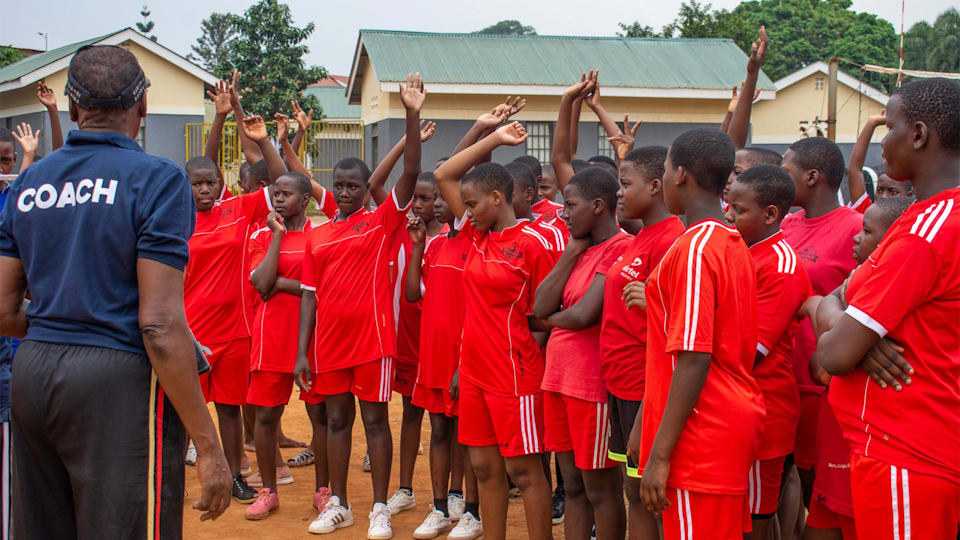In Uganda, driving systemic change
At the grassroots, in the boardroom, on the podium

Leading into the Paris Games, where for the first time female athletes will have as many places on the field of play as the men, it’s no secret the Olympic world has sought to make gender equality an emphasis.
In Uganda, change has been systemic. Deliberate. At the high-performance level – on the Olympic team – and the grass roots. In both Olympic and Paralympic sectors. In schools, workplace and management. It has been far-reaching though, to be clear, far from complete. It starts from this fundamental mind shift:
“Gender is not a barrier,” said Rosette Sayson Meya, chair of the National Olympic Committee’s gender, equity and diversity commission. “It’s just a factor. One of many.”
Sayson comes from a family of seven brothers, second from last in the birth order. She is formidable. But people don’t do things around her because they’re scared. They want to make it work not just for her but with her.
“At times,” said Elijah Njawuzi, the NOC staffer in charge of Olympic Solidarity matters, “I just sit back, I look at her, I’m like, ‘Mom, you take the lead, everything is going to be cool.’”
In Uganda, the approach, as explained in a position paper: “There is a dire need to shift women and young girls’ leaders’ consciousness in a transformative way.” When that happens, women can “take up more leadership roles in civil society, communities and political spaces,” their “leadership capabilities [shifting] from short-term to long-term sustainable benefits.”
The NOC’s core values start with “excellence” as No. 1 and then go directly, at No. 2, to “inclusivity”: “We embrace equity, diversity, gender intersectionality, mutual respect and multiple perspectives of human identity.”
Such far-reaching declarations need to be matched with commitment.
Ten, 12 years ago, the NOC’s executive committee surveyed the country. From top levels of management to its coaches, almost all slots were filled by men. “This,” Njawuzi said, “was alarming.”
The NOC’s constitution now includes a provision that advocates for women’s equal participation on and off the field of play.
The team Uganda sent to Tokyo 2020: 12 men, 13 women. In the women’s 3,000m steeplechase, Peruth Chemutai became the first Ugandan woman ever to win an Olympic medal – at that, gold.
Olympic Solidarity-funded Sports Administrators Courses (SAC) and Advanced Sports Management Courses (ASMC), traditionally a direct path to, through and into top sport management positions, encourage female participation by proposing higher subsidies for minimum 40% female participation, which is not easily met in several countries.
In Uganda the average female participation since 2021 at SAC has been at 63% % (100% in 2023) and 67% at ASMC."
The last three Ugandan graduates of the Executive Master in Sports Management programme, MEMOS – all women.
The NOC commission chairs? Five women, six men.
At the grassroots: a March 2023 workshop, funded by Olympic Solidarity, commemorating International Women’s Day that brought together 60 girls. Asked to share challenges – boys chosen first, not enough female teachers, menstrual challenges, parental pushback, balancing sport and school – the girls offered solution. Clubs. More time for all for sports. A girl who’s got special sports talent? Recognize that.
Everything starts, they said, by knowing every girl has a voice. And has every right to speak up.
Equally important, Sayson said: the boys. As they grow into young men, it’s imperative they become what she calls “ambassadors of gender equality.”
When you set about 10 years ago to empower young women, she said, girls can – and do – and grow up knowing gender is just a factor.
Simply one of many.